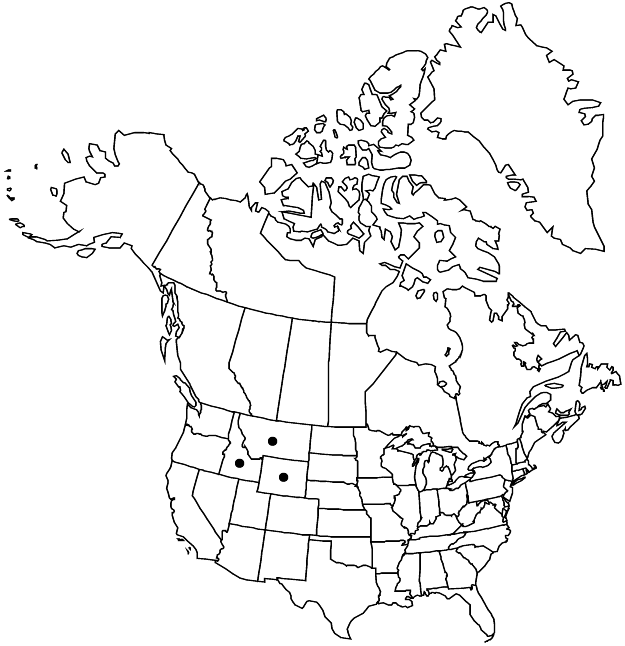Difference between revisions of "Sullivantia hapemanii var. hapemanii"
Endemic
Synonyms: Sullivantia halmicola A. Nelson ex Small
Treatment appears in FNA Volume 8. Treatment on page 123.
imported>Volume Importer |
imported>Volume Importer |
||
| Line 50: | Line 50: | ||
|publication year= | |publication year= | ||
|special status=Endemic | |special status=Endemic | ||
| − | |source xml=https:// | + | |source xml=https://bitbucket.org/aafc-mbb/fna-data-curation/src/2e0870ddd59836b60bcf96646a41e87ea5a5943a/coarse_grained_fna_xml/V8/V8_245.xml |
|genus=Sullivantia | |genus=Sullivantia | ||
|species=Sullivantia hapemanii | |species=Sullivantia hapemanii | ||
Latest revision as of 22:42, 5 November 2020
Flowering stems 5–60 cm. Leaf blades 1–11 cm wide, 5–13-lobed for 1/4–1/2 length, lobes cuneate-oblong to subovate, 1–2 times dentate to subcrenate. Flowers: sepals triangular-ovate, 0.6–1.3 × 0.6–1 mm; petals ovate and abruptly clawed to ovate-lanceolate and more gradually narrowed into claw; ovary ± as long as wide. Capsules cylindric-ovate, 3.2–8 × 1.5–4 mm, to 2.5 times longer than wide. Seeds 0.9–1.6 mm. 2n = 14.
Phenology: Flowering Jun–Aug.
Habitat: Moist cliffs, stream banks, springs, near waterfalls, typically on limestone
Elevation: 900-2500 m
Distribution

Idaho, Mont., Wyo.
Discussion
Variety hapemanii occurs in the Bighorn Mountains of north-central Wyoming and Bighorn Canyon of south-central Montana, with outliers in the Owl Creek Mountains and northern Laramie Range, Wyoming. It is also disjunct in the middle fork of the Salmon River in central Idaho.
Selected References
None.
Lower Taxa
None.